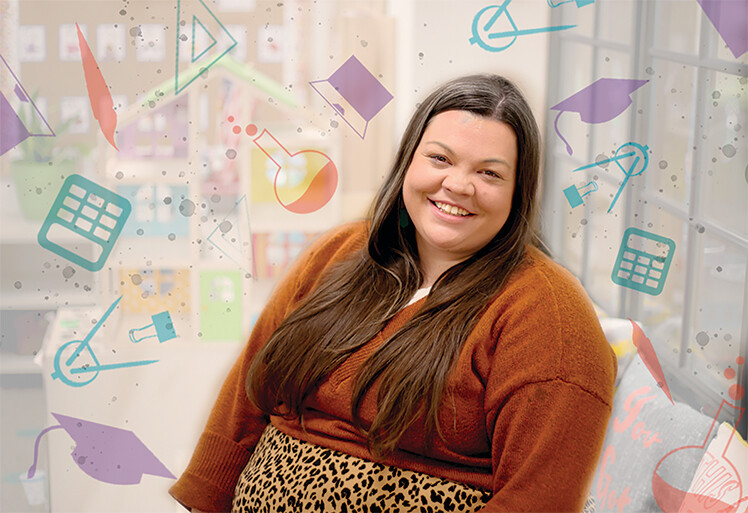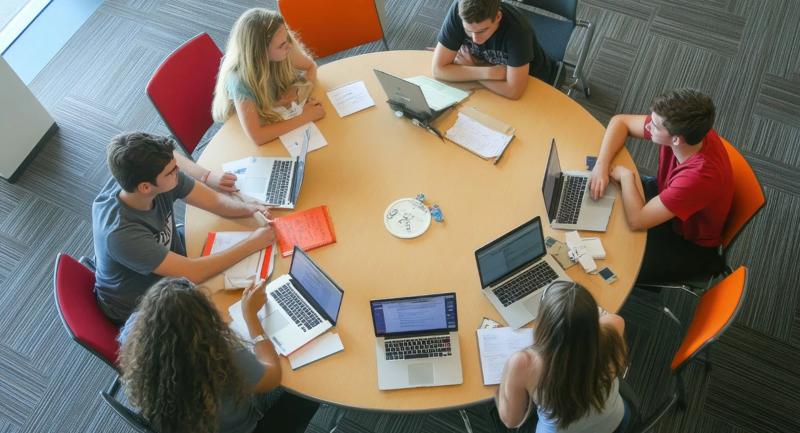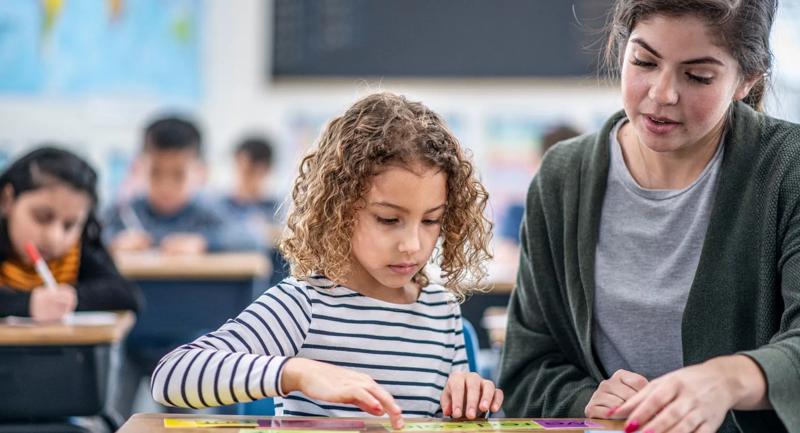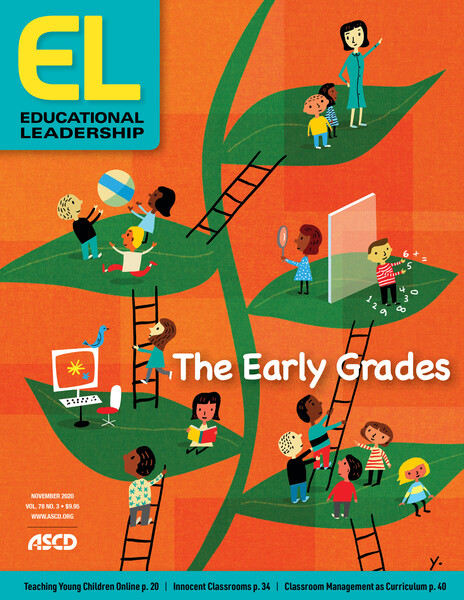Kansas native Tabatha Rosproy is the first early childhood educator to be named National Teacher of the Year. She teaches preschool for Winfield Early Learning Center, and her classroom is housed in a local retirement community and nursing home, allowing for intergenerational interactions and learning experiences. Rosproy has served in many leadership positions, including on her building leadership team and as copresident of Winfield National Education Association.
What are the biggest misconceptions of early childhood education?
I think a lot of people assume we are daycare. We constantly fight for legitimacy. I think, also, that people expect that early childhood educators, because they are so nice and they talk to little people all day and their voices can be sing-songy, aren't as invested in the pedagogy or the leadership roles in our schools and communities. That is absolutely not true. Some of the best and smartest leaders I know are at the early childhood level. People also assume we play all day, because learning looks different when you're young. But learning should look fun at every age! We're doing it right.
What have been your biggest teaching challenges since the pandemic hit?
Reaching young learners from behind a screen or from a distance is very difficult. I've also seen a huge increase in the amount of family support I need to give. I've always had a soft spot for families—I love hosting book studies and family nights in my classroom, and I've taught the occasional parenting class about developing kids' social-emotional skills. But when the pandemic hit, I felt like I almost became a part-time counselor for parents.
It's tough to motivate children at home where they don't have the positive peer pressure of other kids around them doing the same thing and staying on task. So, a lot of what I did was help parents create schedules and visual aids for kids to know what to do and when. This was especially helpful for parents who were also working from home.
How do you keep a 4-year-old engaged and responsive on a screen?
Teaching, especially teaching young kids, is 90 percent theater. You need to keep them engaged and not be afraid to look foolish. Kids are very forgiving, and they love when you're goofy!
But now we have this situation where we are on Zoom with a bunch of kids, and their parents are also there, and teachers have become a little more reserved. My advice to them is, just forget this change in audience. Teach like nobody's watching except your kids. We are in this situation for better or worse, so just go all-in. Do things that keep their attention and keep them watching the screen, no matter how silly it might make you look.
As kids are being expected to learn more skills and content at younger ages, are you worried that children's developmental needs are being ignored?
The pressures of high-stakes testing starting in 3rd grade is definitely trickling down. So, if 3rd graders aren't ready, what can teachers do in 2nd grade to get them ready? And you hear people say that kindergarten is the new 1st grade and preschool is the new kindergarten. A big part of my job has been advocating for developmentally appropriate practices. The term "kindergarten-ready" is important, but it's also just as important for kids to be ready to take on whatever work is developmentally appropriate for them.
What are the unique challenges of teaching in a rural school?
One, definitely, is that my kids have a lack of exposure to people who are different from them. When we don't focus on giving our students a diverse experience, it's easier for them to develop ideas of otherness. Therefore, I try to bring more of the world to my kids. I make sure that all my materials and books in the classroom reflect diverse populations. We don't just have white baby dolls and white characters in our books. I've also asked friends in different parts of the world for help. One year, for example, my kids had pen pals in China where my friend was teaching, and they got to video chat with them and draw pictures together. Another friend works at the National Museum of History in New York and we occasionally do things online with her.
I will say one benefit to my students is having the interaction with the residents of the retirement community that our classroom is housed in. The "grandparent" volunteers are a part of the fabric of our room. We read with them, play with them, and do special visits to the patients who are room-bound. Best of all, my kids get to hear their stories. There's an untapped richness of experiences [these older people have had], and to me that's so exciting. Everyone is benefiting. Residents report decreased depression, more joyful purpose in life, more active participation in activities. It's a win-win.
We've all heard that children are very resilient during tough times—in your experience, is this true? Will the kids be alright?
I do think we'll make it through. I do think they'll be OK. I think the most important thing is going to be emotional support. We need to be more responsive to our students' needs than we were prepared to be in this pandemic. Our students are experiencing loss, they are experiencing change, and these things are hard for kids. They thrive on routine and consistency, so the more we can give that to them, the better they will be in the long run.
Academics are important, but let's give ourselves a break on some of that right now. That will come. Right now, we need to survive this. We need to stay healthy, make sure they stay healthy, and take care of our kids' hearts.
Editors' note: This interview has been edited for space.







